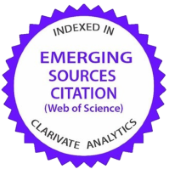The Role of Psychological Factors in Travel Constraints Effect on Leisure Travel Participation of People with Disabilities
DOI:
https://doi.org/10.29036/1xbgfz28Keywords:
Travel Constraints, Learned Helplessness, Self-Efficacy, Leisure Travel Participation, People with DisabilitiesAbstract
People with disabilities are an underrepresented group in the tourism sector. They face more complex challenges than able-bodied tourists due to various barriers that hinder their participation in tourism. This study aims to explore the impact of travel constraints on leisure travel participation among people with disabilities through the psychological approaches of learned helplessness and self-efficacy. The study's conceptual framework is derived from the theories of leisure constraints, learned helplessness, and social cognitive theory. The data collection procedure in this study was carried out in collaboration with private disability management organizations, disability education institutions, and government-affiliated institutions in Indonesia. The questionnaires were distributed from June 25, 2024, to August 8, 2024. From the 300 questionnaires distributed, 226 were returned, but only 221 met the research criteria. The respondents consisted of individuals with physical and sensory disabilities. Data analysis (CFA), Confirmatory Factor Analysis, was employed to validate the research model framework, and Structural Equation Modelling (SEM) was employed to test the seven proposed hypotheses. The study results indicate that travel constraints negatively affect leisure travel participation and positively affect learned helplessness and self-efficacy. Additionally, learned helplessness and self-efficacy positively influence leisure travel participation. This study contributes to developing a research framework on the travel behavior of individuals with disabilities by building on findings from previous studies. The results provide a deeper understanding of the specific characteristics of travel behavior among individuals with disabilities and explore the role of psychological factors in enhancing their tourism participation. Practically, this study supports formulating strategies and inclusive tourism policies to create satisfying and equitable travel experiences for all.
Downloads
Downloads
Published
Issue
Section
License
Copyright (c) 2025 Journal of Tourism and Services

This work is licensed under a Creative Commons Attribution-NonCommercial-NoDerivatives 4.0 International License.
Journal of Tourism and Services (ISSN 1804-5650) is published by the Center for International Scientific Research of VŠO and VŠPP in cooperation with the following partners:
- Juraj Dobrila University of Pula, Faculty of Economics and Tourism, Croatia
- School of Business and Administration of the Polytechnic Institute of Setúbal, Portugal
- Szent István University, Faculty of Economics and Social Sciences, Hungary
- Pan-European University, Faculty of Business, Prague, Czech Republic
- Pan-European University, Faculty of Entrepreneurship and Law, Prague, Czech Republic
- University of Debrecen Faculty of Economics and Business, Hungary
- University of Zilina, Faculty of Operation and Economics of Transport and Communications, Slovakia
The publisher provides a free access policy to the Journal of Tourism and Services.





